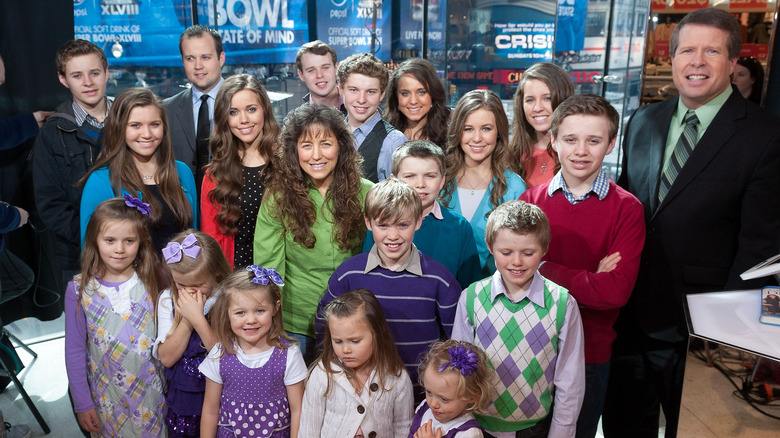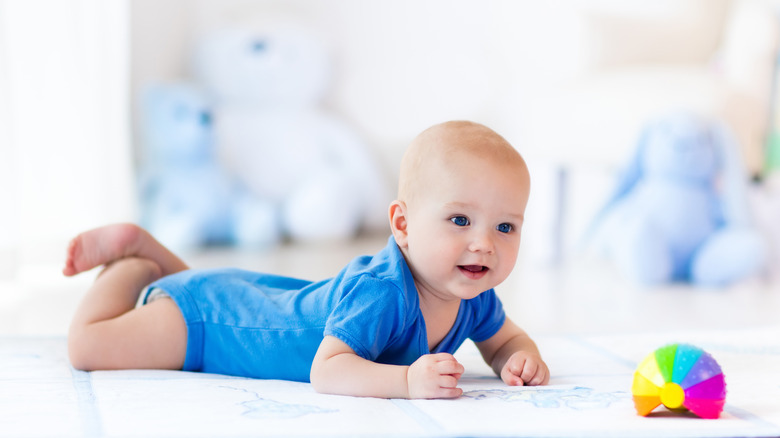Why The Duggars' 'Blanket Training' Technique Is So Concerning
Most parents find it challenging enough getting one or two children to keep up with their chores, play nicely together, and get through the day without tantrums or pouts. That's part of the appeal of the Duggars, the famous family of "19 Kids and Counting." Over the years, viewers have marveled at the way parents Jim Bob and Michelle have run an efficient, harmonious household with seemingly no effort. From homeschooling to holidays, music practice, Bible study, and the various tasks of everyday life, the huge clan has managed it all with barely a cross word or slammed door.
How do they manage? Certainly love plays a large part in it. But the Duggars' parenting methods are inspired by a controversial religious curriculum called Advanced Training Institute. The ultra-conservative group recommends the use of a book called "To Train Up a Child," by Michael and Debi Pearl. Their philosophy: Children should follow their parents' every command quickly and happily, and the only way to do that is to train them never to disobey. "The emphasis is on training a child before the need to discipline arises," they write. "As you come to understand the difference between training and discipline, you will have a renewed vision for your family — no more raised voices, no contention, no bad attitudes, fewer spankings, a cheerful atmosphere in the home, and total obedience from your children."
That training starts when children are barely old enough to crawl, using a technique known as "blanket training."
The Duggars follow a parenting manual that includes spanking infants
The Pearls' book, which the Duggars have promoted on their website (via the Without a Crystal Ball Instagram page), advises parents to begin obedience training by putting their baby on a blanket and setting a toy just out of reach. When the child reaches for it or moves off the blanket, the parent calmly says "No," and hits the child lightly with a spoon or other object. Eventually, the child learns to stay put. As toddlers, children are "trained" with the switch to come when called to obey commands without argument, and not to whine or misbehave.
Critics argue that the cost of obedience isn't worth it. The American Psychological Association has issued a position paper on physical discipline. Based on extensive research, the paper concludes that physical punishment — even if it's not technically abusive — can affect children's health, cognition, and social skills. Studies also show that corporal punishment really doesn't affect the likelihood a child will stop a negative behavior.
Other portions of the Pearls' book are just as concerning: Is your child late to potty-train? Wash them with a garden hose if they poop in their pants. Do you give your baby bottles or pacifiers? You're setting them up for obesity. And don't forget to teach your girls how to keep house and your boys how to be manly. "The mother [of daughters] should always keep in mind that she is molding a future wife and mother," they write. "Fathers ... if you leave your sons for the women to rear, don't be surprised if at 16 they act more like daughters."

